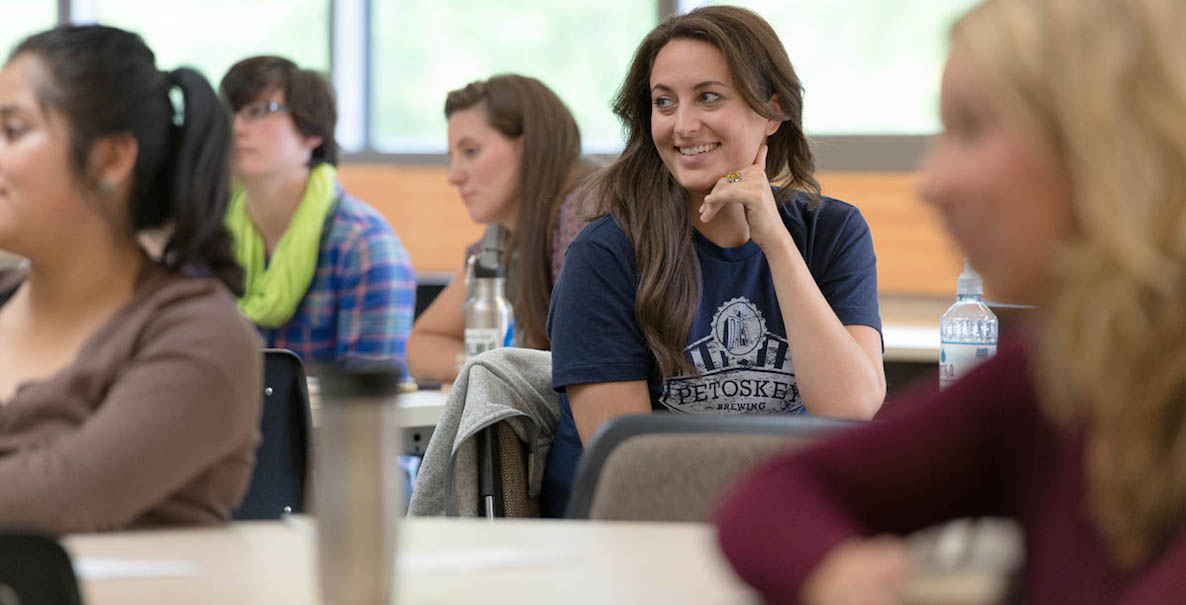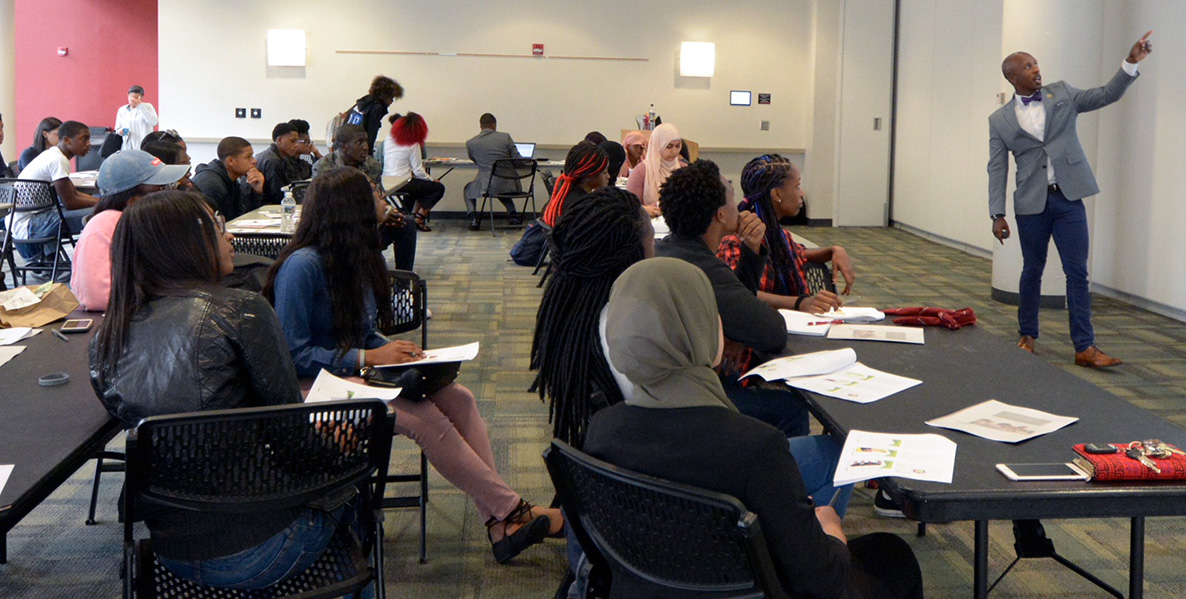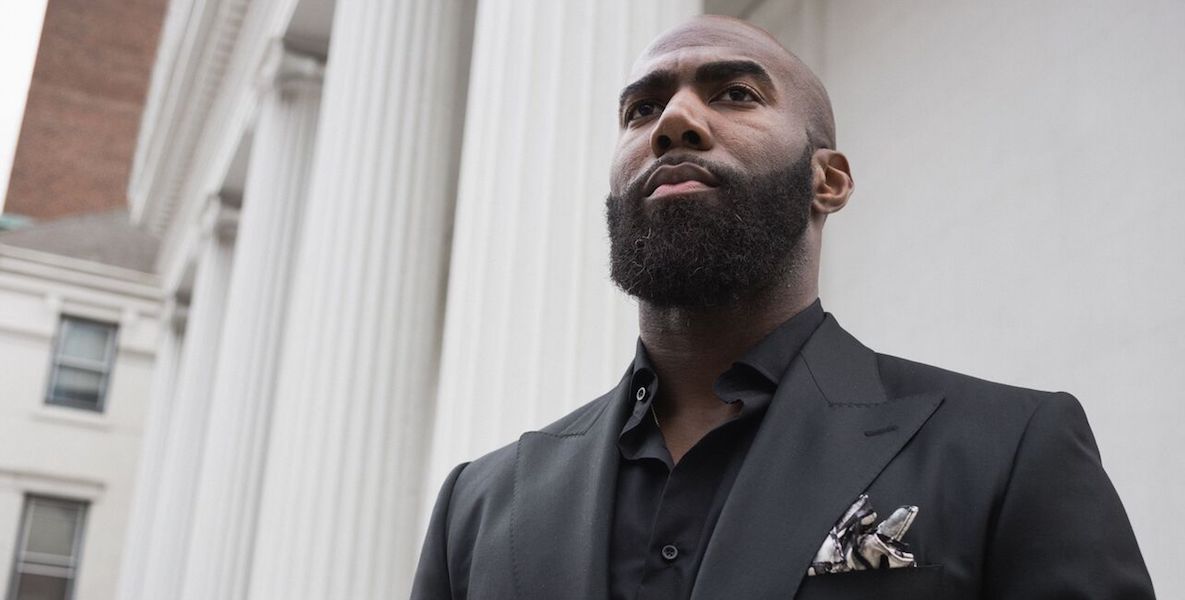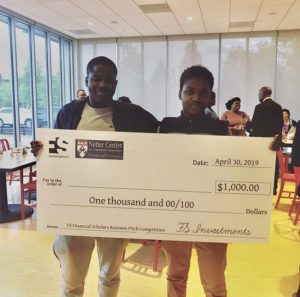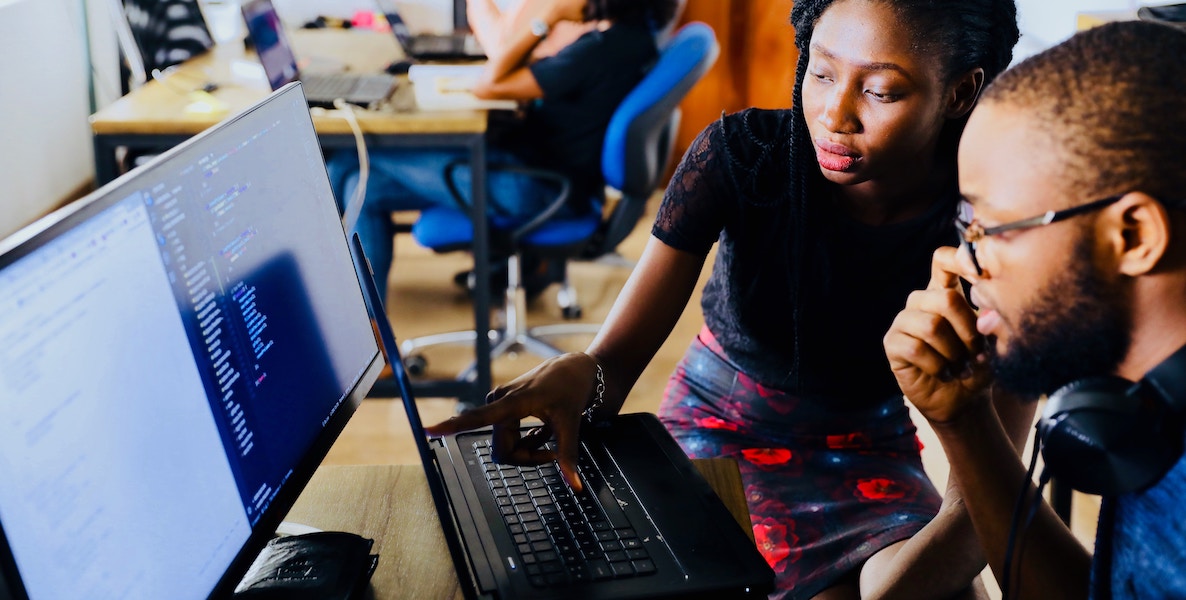How did Beyoncé grow a net worth of more than $400 million?
Not, it turns out, solely by making records and touring the world. It also took a savvy approach to managing and—more importantly—investing her money.
It’s this question—and answer—that informs the financial empowerment and entrepreneurship curriculum at Murrell Dobbins Career and Technical Education High School in West Lehigh.

Prefer the audio version of this story? Listen to this article in CitizenCast below:

![]() Twice a week, as part of a unique program called Bridges to Wealth, University of Pennsylvania students visit teacher James Breslin’s computer systems shop class to teach high schoolers how they can use computer technology and hone certain technical skills to grow their wealth.
Twice a week, as part of a unique program called Bridges to Wealth, University of Pennsylvania students visit teacher James Breslin’s computer systems shop class to teach high schoolers how they can use computer technology and hone certain technical skills to grow their wealth.
Bridges to Wealth is a Penn-based non-profit that, since 2012, has taught teens, their parents and their neighbors how to build personal wealth and start businesses through investing, managing their credit scores and developing an entrepreneurial spirit.
The program trains Penn student volunteers through the Netter Center for Community Partnerships; they then pass on the training to students in classrooms around the city.
“We see it as a social justice issue,” says Jill Bazelon, director and co-founder of Bridges to Wealth and professor in Penn’s Graduate School of Education. “Historically, underserved populations have been shut out of the market and haven’t had the same access or exposure to it.”
 According to Bridges to Wealth, less than 7 percent of minority households invest in the stock market beyond their retirement plans. The median wealth of a white household is 13 times more than the median wealth of black households and seven times more than Hispanic households.
According to Bridges to Wealth, less than 7 percent of minority households invest in the stock market beyond their retirement plans. The median wealth of a white household is 13 times more than the median wealth of black households and seven times more than Hispanic households.
This gap, with its deep and complex roots in systemic racism and intergenerational poverty, makes it harder for minority families to build a stable financial future.
In 2012, Bazelon and Bridges to Wealth co-founder, Penn Business Strategy Professor Keith Weigelt, saw the wealth disparity surrounding Wharton in West Philly and decided to create a program that would give underserved Philadelphians the education and resources they need to break this cycle of poverty and decrease the wealth gap.
For them, it was about more than de rigueur financial literacy, which by then had become a hot branding phrase that, in essence, alluded to teaching people how to budget so they didn’t find themselves falling short—a nod to the fact that some 44 percent of Americans say they are one paycheck—or $400—away from financial insolvency.
Bridges to Wealth is about addressing the potential not just to stay solvent, but to grow wealth through smart investments, wise money management and entrepreneurship.
This is also a a tenant of Jay-Z’s Shawn Carter Foundation, which partnered with Bridges to Wealth to provide general funding and expand the program to Brooklyn. The Foundation hosts concerts with Jay-Z and Beyoncé that directly impact Bridges to Wealth, like Made in America’s Cause Village and their Tidal X concert in 2016.
Bridges to Wealth is also sponsored by the FS Foundation, the philanthropic arm of asset management firm FS Investments, through its FS Financial Scholars program. (FS is also a sponsor of The Citizen.)
![]() Now, Bridges to Wealth programs offer in-class and after-school programs about personal finance, investing and entrepreneurship in 15 Philadelphia public, private and charter schools. In addition, 2,700 adults have learned about financial empowerment and investing by attending Bridges to Wealth workshops in Free Library branches, senior centers and other community organizations across the city.
Now, Bridges to Wealth programs offer in-class and after-school programs about personal finance, investing and entrepreneurship in 15 Philadelphia public, private and charter schools. In addition, 2,700 adults have learned about financial empowerment and investing by attending Bridges to Wealth workshops in Free Library branches, senior centers and other community organizations across the city.
Kyrie Keels is a 16-year-old junior in Breslin’s class at Dobbins. There, he learns about computer science, but with the addition of Bridges to Wealth, he and his classmates now consider themselves computer scientists and businessmen.
Keels’ class participated in a community-wide, Shark Tank-style pitch competition hosted by Bridges to Wealth and FS Investments, where they won $1,000 to start the business they dreamed up: making air-conditioning and heating units eco-friendly. After winning, Keels and his teammates were invited to take a paid summer internship at Penn, where they re-developed their company into one that would instead fix phones for members of their community.
The median wealth of a white household is 13 times more than the median wealth of black households and seven times more than Hispanic households.
Now, Keels’ business, Teens Do Tech, has served more than 30 students at Murrell Dobbins in its first weeks and is looking to build its social media presence.
Before Bridges to Wealth came into his classroom, Keels says, he had no confidence that a 16-year-old could create a successful business. “Anyone can start a business,” Keels says now. “If you have a great idea, you can create a business.”
Breslin says he has seen his students’ demeanor change since Bridges to Wealth entered his room. “It’s been a game-changer for them. They are now thinking about life after high school, and they feel capable of giving themselves a financial booster by investing or starting a business.”
![]() Elimane Mamadou is a sophomore at South Philadelphia High School, where he interacted with Bridges to Wealth in his world history class. Mamadou created a company, Teen Connect, a forthcoming website that connects high school students to paid internships and jobs.
Elimane Mamadou is a sophomore at South Philadelphia High School, where he interacted with Bridges to Wealth in his world history class. Mamadou created a company, Teen Connect, a forthcoming website that connects high school students to paid internships and jobs.
Mamadou and a friend tied the pitch competition with Keels’ team and also participated in the summer internship at Penn. He is now working on building the site, with a plan to launch it this year.
“There’s not a lot of opportunity in our schools,” Mamadou says. “I was pretty scared to graduate and be an adult before, I’m not going to lie. But they taught me a lot about investments, saving and being responsible.”
Bridges to Wealth also focuses on exposing underserved communities to investing, something Weigelt says low-income families typically don’t consider. But invested money grows about eight percent a year—while money in banks grows less than one percent, on average, in the same amount of time. Weigelt says investing has helped participants double the amount of their savings.
“I was pretty scared to graduate and be an adult before, I’m not going to lie,”Mamadou says. “But they taught me a lot about investments, saving and being responsible.”
Bazelon is a Philly native with deep roots in civil- and social-minded work. Her grandfather David was a federal judge; her sister Dana works for District Attorney Larry Krasner; Emily is a New York Times Magazine writer who focuses on family, women and law; and Lara is a University of San Francisco law professor who is a prominent advocate for the wrongfully convicted.
Through her program, Bazelon has seen a significant impact through the free consulting it offers, where participants can bring in their 401k to be reviewed.
![]() “We hear regularly that prior to joining the program, no one explained how to invest these retirement funds,” she says. “During our monthly meetings, people regularly attest to lifestyle changes they have made, like reducing the amount of credit cards they use or how they save money by buying store brands rather than national brands for basic groceries.”
“We hear regularly that prior to joining the program, no one explained how to invest these retirement funds,” she says. “During our monthly meetings, people regularly attest to lifestyle changes they have made, like reducing the amount of credit cards they use or how they save money by buying store brands rather than national brands for basic groceries.”
Moving forward, the nonprofit plans to expand to greater Philadelphia.
“It’s a simple thing that can be done to reduce the wealth gap,” Bazelon says. “Beyond that, it’s also the opportunity to gain life skills that are really essential.”
Photo courtesy NESA by Makers / Unsplash


